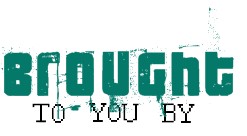Finding the Stormtrooper complex in video games

In the year 1994, Kevin Smith wrote, directed, produced, and even acted in one of the most successful and influential independent movies of modern film culture by the name of Clerks. A famous scene from the film involves the titular protagonists Dante Hicks and Randal Graves engaged in a heated debate over the morality concerning the explosion of the second Death Star caused by the rebel faction in Return of The Jedi, an entry from the revered Sci-Fi series Star Wars. The debate was over the politics concerning the needless death over hypothetical citizens that may have been independent contractors (off-screen and script mind you) working towards the reconstruction of the planet-killing vessel for the Empire, in what could have been the equivalent of a government sanctioned job in contrast to reality.
The moral ambiguity of the conflict involves weighing the deaths of an innocent third-party killed by the supposed “virtuous” faction in war stories. This theory was made famous and then eventually spawned a much more in-depth take from the scenes of the original movie, A New Hope, where the question of morality comes into play yet again with role of the Stormtroopers and how they’re simply soldiers dictated by a tyrannical empire, and having little or no choice but to serve its cause. In the climax of the movie, however, they're all murdered in the original Death Star’s explosion by none other than Luke Skywalker himself, and thus this viewpoint became dubbed by nerd culture abound as the “The Stormtrooper Complex.” Why am I going on about an about a popular yet existential outlook on a work of fiction that holds no real weight other than philosophical semantics amongst nerd culture? Here’s why: the debate lives on as we apply it to two of the most popular video game franchises today.
Nathan Drake, the man who plays the role of a charismatic hero in Uncharted, stoically challenges the perils of natural dangers in search of ancient cities that hold immeasurable wealth unimaginable beyond any earthly being. In his quest to locate the legendary city of El Dorado, Drake first deduced that information may have been recorded in the fabled diary of his ancestor, Sir Francis Drake, and enlisted the help of prime time television reporter Elena Fischer. Out at sea near the Panamanian canal, Nate deduced that the diary was buried at sea as opposed to the legendary explorer’s supposed corpse, and his theory proved true, but unfortunately their victory is cut short when they run afoul with pirates. Immediately Elena suggested that the authorities be contacted, but Nate objects and states that they fend off the attack themselves, or deal with the criminal offense of ocean excavation without a legal permit.
Our noble star suddenly breaks any implied righteousness we though he possessed, and now chooses to resort to murder instead of owning up to the consequences of punishable criminal offense charges that he intentionally committed along with Elena being nothing more but an ignorant accessory.

The rational reasoning behind using lethal force as opposed to contacting coastguard for help, you ask? It was the thought of him landing in a Panamanian prison, which he further adds would be a fate much worse than dealing with the moral consequence and eternal guilt of ending a human life; this was much easier to swallow for our pulp everyman than the thought of serving time in prison.
What’s the big deal though, right? The world is better off with a few less pirates sailing around and ruining the lives of every doomed soul they come across, but that’s just where the madness begins, and steadily at that. Over the course of four years, Nathan Drake encountered some of the most ridiculously affluently financed yet sinister villains, who have employed more henchman and mercenaries then a third-world census count. At first, it seems like our hero is simply doing what he needs to for survival as he comes to conflict against these figures and their small armies, but do these soldiers know exactly what they’re up against? Within a matter of thirty seconds, Drake brutally snapped the necks of two unsuspecting goons and finished the remaining faction off with bullets he shot at point blank range from the end of a barrage of his fists that had already succeeded in caving the temple of enemies’ skulls before the gun-fire even expelled whatever brain stew was left in their doomed skulls. What drives a man to do what he must before his actions are simply defined as carnal bloodlust over what’s considered right?
During the race to find Shangri-La, The war criminal Zoran Lazarevic is first shown dealing with those who betray him, by the ruthless and slow gutting of his turn-coat soldier, as he then dropped the corpse into the jungle loch where the traitor’s innards floated not too far from the body they came from, like a boy following his mother in the marketplace. This is the alternative as opposed to what? Receiving about half a clip of rounds from an M4 straight to the chest? Or being pulled of the edge of a cliff in the Himalayas? In some cultures, regardless of whatever the question of intention or conflict of morals may be, both of these men would be labeled as fucking demons. Regardless of whatever his enemies may say, whether they draw a direct comparison to one another or insinuate that Nate secretly lusts for the carnage he reluctantly finds himself in, one can’t deny that the possibility of the henchman who I just had Drake lethally crush the groin of, could have just been a family man who was mailing his earnings to provide for the only ones in the world that ever really mattered to him.
Let’s travel back in time to the year 1459, where we witness the birth of one of the most deadly assassin’s in mankind’s history, Ezio Auditore da Firenze. As we fast forward to the age of seventeen where Ezio is gradually approaching his ascension to manhood, he is but a typical young man with priorities that consisted of only the occasional fisticuffs against his rivals the DePazi family, or the vigorous chase of courtship where Ezio exercises his libido frequently with the many women of Florence. That all changed the moment he watched the hanging of his father and brothers who were accused of treason, which proved to be nothing more than a clever conspiracy enacted by his true enemies, the Templars. A man is born, but this man barges into manhood with vengeance driving the clench behind his fists. Ezio is forced to evacuate his surviving fugitive family to Monteriggioni, where he claims sanctuary with his uncle Mario and learns the true heritage of the conflict in which he was thrown into.
In his quest against the Templar conspirators, Ezio fulfills the contracts that he is meant to carry out as an assassin, but the question of the casualties really comes into play here. While the beginnings are much more humble in the making, Ezio’s reign of the Assassin mantle is one that holds a mortality rate that a saint would struggle with forgiving.

Through all the scaling and leaping through the cities of Italy, Ezio is a wanted man. However, he is a trained one, fully adept of his resources. The assassin can throw money as a distraction, or enlist the sultry work of the local whores to entertain his prey as he sets to eliminate his destined target, and yet with every opportunity that he is presented with, the results mainly lean towards homicide. Where is the harm in this, you ask? I mean the guy is an assassin, it’s not like he’s spent years of his life training to be a diplomat, but rather learning the most efficient way he could thrust a blade in and out of a man’s jugular. Examine the setting further though. The Templars are a clandestine circle of individuals who thrived for years by political manipulation through various governments, kingdoms, and empires. This knowledge is possessed only by the Assassins and their allies alone other than the upper rankings within the Templar order. Therefore, one can conclude that all these guards, these foot soldiers are completely ignorant of the cause they serve to the Templars, and operate solely as soldiers serving their nation…sound familiar?
These men who stand guard on various rooftops and throughout the streets are simply under the orders to apprehend the fugitive Ezio Auditore da Firenze, who are completely unaware of what crusade he actually leads. The interesting irony behind this whole thing is that the Assassin’s Creed is to uphold the ideology of free will and the ability to choose, yet in several points in where Ezio is in a position to spare what essentially would be an innocent casualty in an age old conflict they never made, he chooses to cover their mouths instead as pieces their abdomens with an eight inch hidden blade shot through his gauntlet. One could argue that a lot of the guards encountered are pretentious dicks who bully citizens daily, but what about the guards who take pride in their service to Roma? Or the guard who was looking for honest work so that he can work towards leading a happy life? They’re more than likely still living the dream or found days later rotting within a bale of hay.
The point of this article wasn’t entirely about trying to bring to surface some sort of malicious undertone that the fiction of these games carry through some trivial theorizing, but rather, it was about the fact that I could.
It may sound blasphemous to most, but the narratives behind Uncharted, Assassin's creed, and Star Wars are so rich that we can immerse ourselves into completely different level of appreciation and depth that allows us to. These stories and their ongoing struggle are so multi-dimensional that the portrayal of morality can be openly debated, that these heroes don’t have to live to up some cliché standard, but instead they can feel real. The narrative of video games is slowly evolving into something that will identify it as a substantial form of art amongst the contemporaries of literature and film, and its works of fiction like these that will continually push the benchmark of obtaining that goal one day.
 assassin's creed,
assassin's creed,  star wars,
star wars,  theories,
theories,  uncharted | in
uncharted | in  Articles
Articles 









